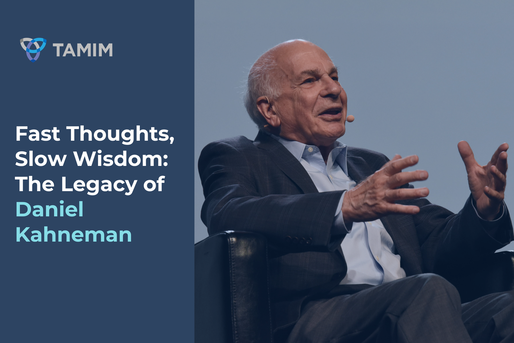|
Daniel Kahneman, an Israeli-born American Nobel prize-winning author, passed away on March 27 at age 90. For those yet to become familiar with his work, he was a psychologist at heart but to many he will be remembered as a pioneer in what has become known as behavioural economics.
His extremely impressive resume includes a tenure with Princeton University, winner of the Nobel Prize in economics (in 2002), and more well-known in the investing circle, author of Thinking Fast and Slow–an international best-seller providing great insights into the human mind. (Ir)rational BehaviourMuch of the teaching in economics (even to this day) assumes that people will behave rationally. That is, using all the information at their disposal, they will make unbiased decisions that are in their own best interests. This includes concepts such as “inferior goods”: when a consumer’s income increases, they will purchase less of a particular item (cabbage is an oft-quoted example in university lectures). They will also purchase more of a particular item when the price of the good goes down, or less of a particular item when the price increases. Yet through the work of Kahneman, and others such as his lifelong accomplice Amos Tversky and now Jason Zweig of the Wall Street Journal, we know that many of these assumptions regarding rationality are at best limited, and at worst, utterly false. Look no further than what are known as “Giffen goods”: think luxury items such as handbags or automobiles. For these items, the high price actually creates part of the allure and prestige. The reality is that the more expensive Giffen goods are, the more people want to purchase them. It is interesting to note that many successful investors and business owners profit from the realities that fly directly in the face of these rational theories. Companies like Ferrari (BIT: RACE) know that the higher price of their cars will (counter-intuitively) create greater demand for them, and See’s Candies (NYSE: BRK.B) knows that people generally will not purchase less of their chocolate if the price is higher, because it is highly valued by consumers and usually purchased on special occasions (most often as a gift). We have seen through Richard Branson’s experiments with cola that even a comparable taste and a comparable price wouldn’t get consumers to switch away from Coca-Cola (NYSE: KO), and we intuitively know that a lot of people will pay more for junk food rather than food that is healthy.
|
Fast Thoughts, Slow Wisdom: The Legacy of Daniel Kahneman
Fast Thoughts, Slow Wisdom: The Legacy of Daniel Kahneman
Written by

